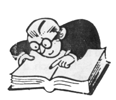|

This story was published in Radio Recall, the journal of the Metropolitan Washington Old-Time Radio Club, published six times per year.
Click here to return to the index of selected articles.
|
|
  ASK THE EXPERT ASK THE EXPERT
Derek Tague is a well-known researcher in the NYC area who specializes in Old-Time Radio and popular culture.
(From Radio Recall, February 2007)
QUESTION: At the Museum of Television & Radio they tend to bestow upon Norman Corwin some kind of cult status. Sure, he was undoubtedly a creative guy...but certainly not a demigod of radio? True or not? (J. Frank Milligen, Newington, CT)
ANSWER:
Norman Corwin's esteemed reputation in broadcasting is certainly warranted. Someone once said "Irving Berlin has no place in American music...Irving Berlin IS American music!" and it is quite conceivable that an OTR historian might have applied a variation of this formula by asserting: "Norman Corwin IS American radio."
Corwin was the conscience of America during difficult time. He was fiercely patriotic in a traditional sense while at the same time adhering to
progressive ideas like civil rights. Like many folks who preached racial and religious tolerance in the mid-1940s, Corwin ran afoul of the blacklist in the early 1950s.
Early in his career, Corwin attained a degree of excellence in his dramatizations extolling the American spirit and character. Along with Arch Oboler, Lucille Fletcher, Fletcher Markle, and a handful of others, Norman Corwin was one of the few "superstar" name-above-the-title radio writers. He was able to extend this status to exalted program titles like Thirteen by Corwin and Columbia Presents Corwin. Many radio historians consider him THE greatest American radio writer --old-time or any other--that this nation has ever produced.
Whenever CBS needed a "prestige" program to mark an historical occasion, they turned to Corwin. His We Hold These Truths, commissioned to celebrate the 1941 sesquicentennial of the U.S. Bill of Rights, aired about a week after the attack on Pearl Harbor, effectively reminding thereto fore isolationist Americans that this country and its rich history was very much worth fighting for.
At the war's conclusion, Corwin gave us On a Note of Triumph, 14 August, and other comparable shows to enrich the radio audience with a sense of historical importance, both the triumph we celebrated and the challenges ahead. One such show was Ballad for Americans in which Paul Robeson sang a tone poem about the diverse religious, ethnic, and racial backgrounds we Americans share, wrapped around dramatized sketches encouraging tolerance.
Corwin's reputation for such still exists to this day. In 1999, NPR commissioned from him a 30-minute narrative which was narrated by Walter Cronkite Memo to a New Millennium. Not only was Corwin the undisputed master of drama, but also comedy (e.g. My Client Curley) as well as fantasy (e.g. The Plot to Overthrow Christmas.) His rare forays into the realms of cinema were laudatory, most notably the screen play for Lust for Life, in which Kirk Douglas gave the performance of a lifetime as the anguished artist Vincent Van Gogh.
Norman Corwin was considered so important and noteworthy in his day, that there's an entry devoted to him on pages 1097-1098 in Volume One of "The New Century Cyclopedia of Names" (1954) that we use here at Talking Books.
Corwin will be 97 next May 3, 2007. Longevity seems to run in his family. His brother retired recently from the postal service at the age of 99. Their father lived to be 110. I heard Norm speak once and it looks like his politics have not shifted one iota since the 1940s. Maybe that's a good
thing.
Norman Corwin justifiably deserves every accolade he has ever acquired. If the enlightened schoolteachers in the U.S. who teach their
students radio dramatization, were to concentrate one semester solely to the works of Norman Corwin, they would surely have something genuinely worthwhile.
Derek Tague has contributed valuable information to over thirty books, most notably Jim Cox's Radio Speakers, and the updated version of Arthur Anderson's Let's Pretend.. At present, he is working on books celebrating Orson Welles' 1938 The War of the Worlds broadcast and a history of radio and TV Christmas-themed programming with Professor Gary Yoggy. At various times, Derek has been a bank teller, book store manager, comedy writer and performer, disc jockey, published cruciverbalist* (Sunday "New York Times"), certified Braille transcriber, and failed game-show contestant (Who Wants to be a Millionaire?). For over twenty years, he has worked in the blindness field, presently with Talking Book Productions at the American Foundation for the Blind.
* (A creator of crossword puzzles)
|